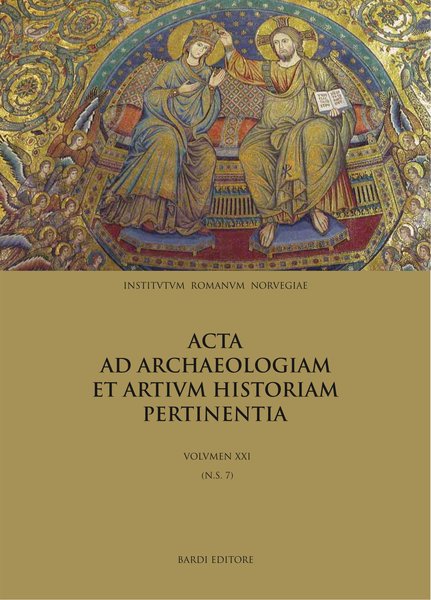The Bride and Groom of the “Canticum novum”
DOI:
https://doi.org/10.5617/acta.5534Keywords:
Iconography, Antiquity, Art history, History of the Church, Byzantine art, Mary Blessed Virgin SaintAbstract
The article concentrates on the “Coronation of the Virgin” in medieval art. This image is based on the Bride and Groom theme from the Canticles. However, whereas this text from the Old Testament was examined already by the Church Fathers in their exegetical writings, a “canonical” representation of it was coined only in the 12th century. This “late introduction” reflects deeply rooted changes in religious life which profoundly changed church history. The turtle dove which
sings in the Canticles is, according to Saint Bernard of Clairvaux, not only a symbol of faithfulness but also of chastity. This chastity must, in turn, be connected with the chastity of the clergy and the development of the idea of celibacy precisely in this period. Hence, the “Coronation”, besides being a symbol of the Church, is also an expression of a precise conception of the Church, namely a body constituted of men who maintain their virginity as brides awaiting the arrival of the Groom.
Downloads
Published
How to Cite
Issue
Section
License

This work is licensed under a Creative Commons Attribution-NonCommercial 4.0 International License.
Authors who publish with this journal agree to the following terms:
- Authors retain copyright and grant the journal right of first publication with the work simultaneously licensed under a Creative Commons Attribution License that allows others to share the work with an acknowledgment of the work's authorship and initial publication in this journal.
- Authors are able to enter into separate, additional contractual arrangements for the non-exclusive distribution of the journal's published version of the work (e.g., post it to an institutional repository or publish it in a book), with an acknowledgement of its initial publication in this journal.
- Authors are permitted and encouraged to post their work online (e.g., in institutional repositories or on their website) prior to and during the submission process, as it can lead to productive exchanges, as well as earlier and greater citation of published work (See The Effect of Open Access).





